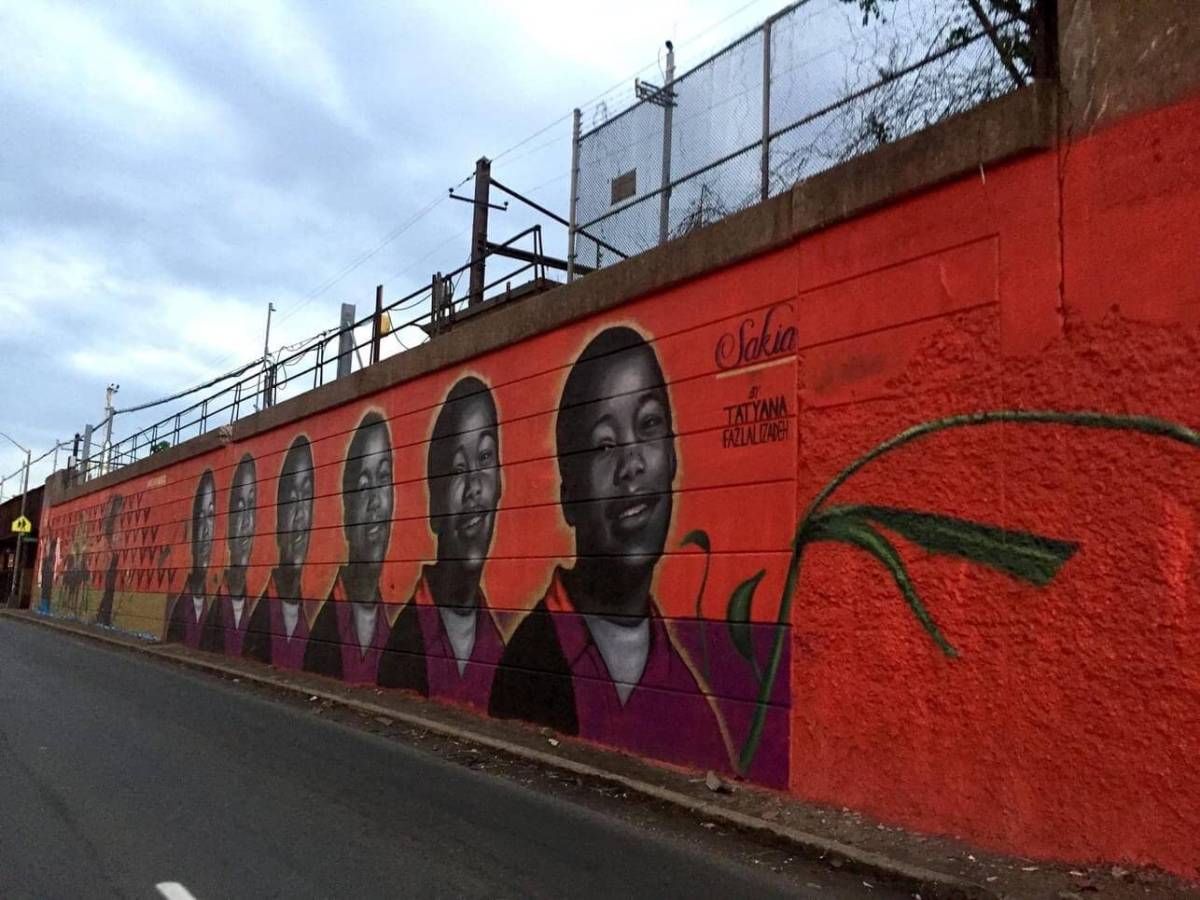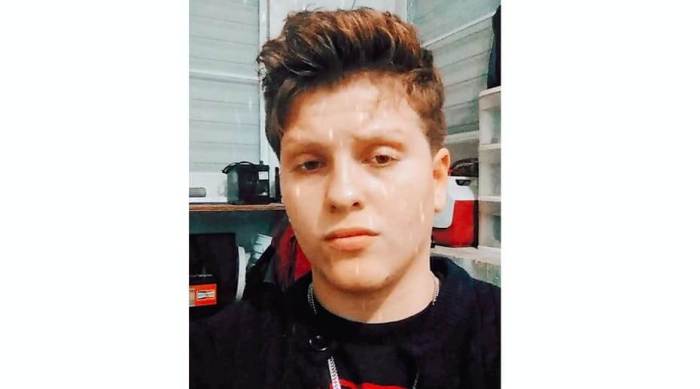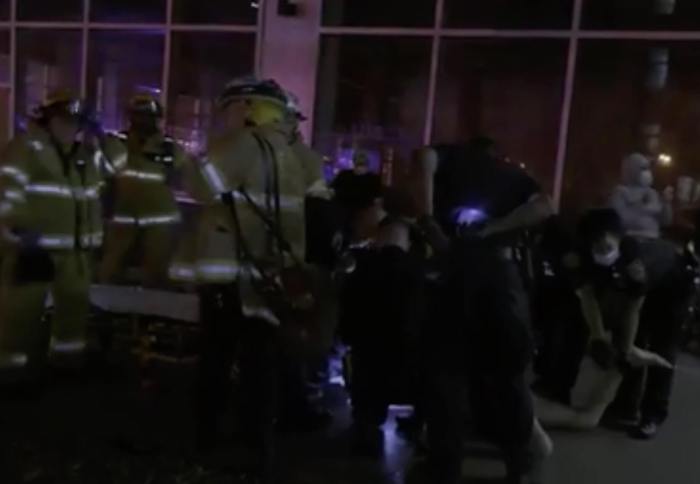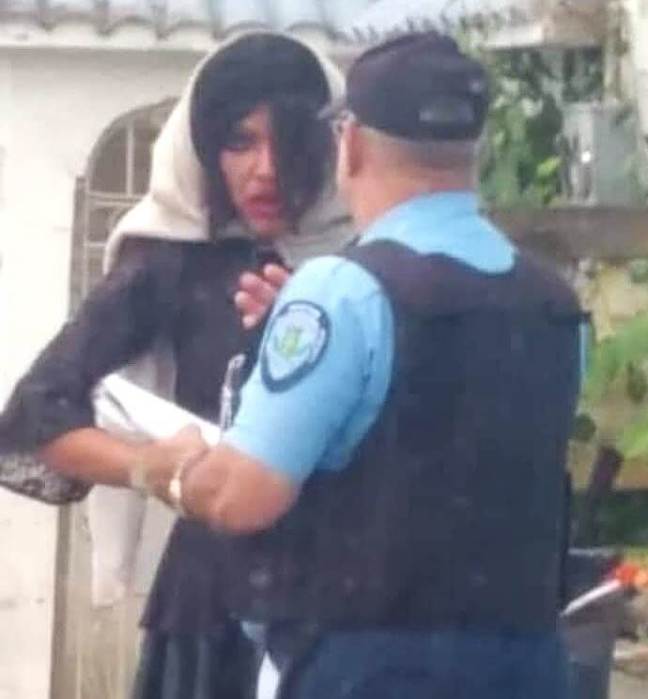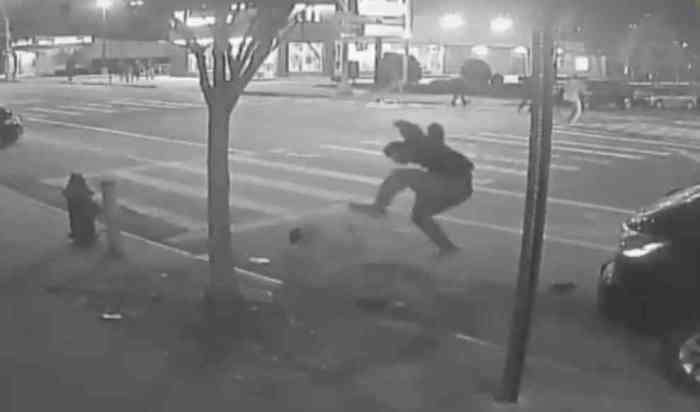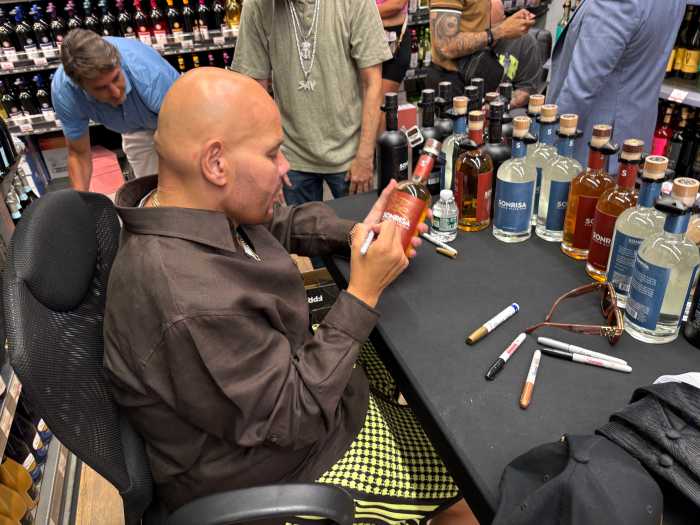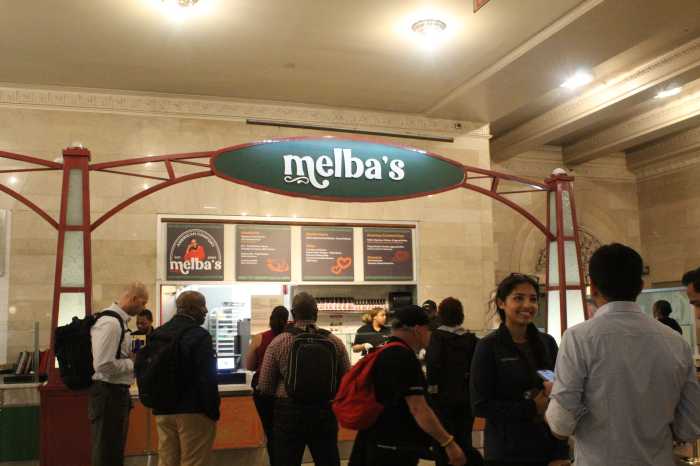Two decades after the murder of Black lesbian teen Sakia Gunn at a popular hangout spot for queer youth, LGBTQ teens still gather at the same corner of Broad and Market Streets in downtown Newark, New Jersey.
On May 11, an estimated 40 people gathered at a mural memorializing Gunn along McCarter Highway in Newark, New Jersey on the 20th anniversary of her murder. They marched past the corner in downtown Newark where Gunn was fatally stabbed on that same day in 2003.
Gunn, 15, and four of her friends were on their way home from an outing in New York’s Greenwich Village on the night she was stabbed to death by Richard McCullough. They were waiting for the #1 New Jersey Transit bus at the corner of Broad and Market Streets in downtown Newark when McCullough and Allen Pierce made sexual advances toward the teens.
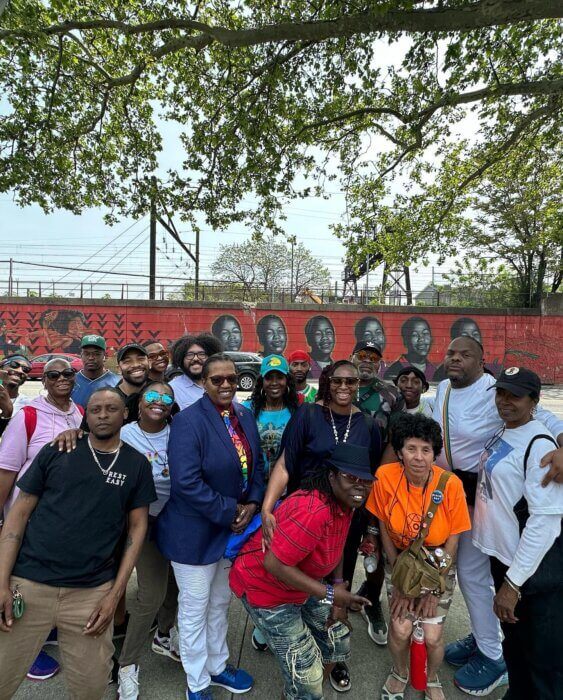
The girls rejected the two men, telling them they were lesbians. The men attacked them and McCullough choked one of Gunn’s friends. Gunn attempted to help her friend, but McCullough stabbed Gunn in the chest. The men immediately jumped into their car and fled the scene.
Gunn’s friends flagged down a car to take them to the closest hospital, University Hospital. Gunn bled out and died in her best friend Valencia Bailey’s arms 15 days before her 16th birthday. Gunn was born on May 26, 1987.
Anthony Hall, Gunn’s cousin, said she was a West Side High School basketball star and straight-A student. The teen was beloved by her family, friends, and community. At the time of Gunn’s murder, she was living with her grandmother, Thelma Gunn, who had legal custody of the teen, Gay City News reported. Upon learning of her granddaughter’s death, Thelma Gunn was rushed to the emergency room for heart arrhythmia at the same hospital where her granddaughter lay dead.
On May 15, four days after Gunn’s death, McCullough turned himself in to the police and he was arrested for Gunn’s murder. He faced six charges: murder, aggravated assault, weapons offenses, and a rare bias charge “murder with a purpose to intimidate an individual or group because of sexual orientation.” As Gay City News reported, Essex County Superior Court Judge Paul Vichness sentenced McCullough to 20 years in prison for aggravated manslaughter, aggravated assault, and bias intimidation on April 21, 2005. Vichness ordered McCullough to serve 85% of his sentence before he would be eligible for parole. McCullough’s plea agreement reduced the charge from second-degree murder to manslaughter. Pierce was not charged.
Nearly 3,000 high schoolers, including many lesbians, walked out of their schools and attended Gunn’s funeral on May 16, 2003, Gay City News reported.
Beatrice Simpkins, executive director of the Newark LGBTQ Community Center, told Gay City News a marker to honor Gunn’s life at the corner where she was murdered has yet to be done. She said the center is going to demand the city place a marker to honor Gunn’s life at the site of her death.
The center, which was built in Gunn’s memory by and for Newark’s LGBTQ community, is celebrating its 10-year anniversary. The marker would not only honor the lesbian teen’s life but also serve as a reminder to future generations of Newark’s queer youth about what happened to one of their own.
“They still continue to find community in that area and that area is not safe for them,” Simpkins, a 63-year-old Black lesbian, told Gay City News. Despite the emergence of organizations like the Newark LGBTQ Community Center, the unsafe feeling persists in the wake of Gunn’s murder due to a lack of spaces and support for Newark’s LGBTQ community, especially its queer and gender diverse youth.
“The fight continues,” said filmmaker Charles “Chas” B. Brack, who shot the 2008 award-winning documentary, “Dreams Deferred: The Sakia Gunn Film Project,” about Gunn’s 2003 murder and the court hearings that followed. “Our communities are under siege right now with some very heinous actors.”
“There is no time to relent in terms of fighting for equity inclusion, and diversity when it comes to the LGBTQIA community,” Brack, 63, a queer Black man who lives in Brooklyn, said.
Currently, there are 490 anti-LGBTQ bills at various levels of State Legislatures across the United States, according to the American Civil Liberties Union. The bills, many of them targeting the transgender community, aim to ban or limit civil rights, free speech, and expression, among other rights.
Brack was compelled to make the documentary about Gunn a decade after her murder and the trial that followed because “I was that kid,” he said.
Like Gunn, Brack came out nearly two decades before Gunn’s murder. He was 15 years old in 1975. It was a different time for a young queer Black man from Chicago. Stonewall and the gay and lesbian liberation movement, which grew into the LGBTQ movement, was still emerging. The American Psychiatric Association had only removed homosexuality as a mental disorder in the United States in 1973 and very few gay rights had yet to be won. Sexual rights for LGBTQ people wouldn’t be assured until 2003, when the US Supreme Court overturned anti-sodomy laws with its decision in Lawrence v. Texas.
“It was a very different time,” Brack said. But still, he added, “the fact that this happened to a 15-year-old in the 2000s, it was just really quite jarring.”
Simpkins described Gunn’s death as “an inspiration for a great social change” in Newark, and he feels she should be honored for that.
“People need to remember that it’s possible to change,” Simpkins said. “It is possible to improve. It’s possible to have a better society. That all happened because of Sakia.”
Brack’s 58-minute documentary was shown at the 20th anniversary memorial march for Gunn on May 11 and at the debut of the Newark LGBTQ Film Festival in April. The screenings were followed by panel discussions at each event.
“People have continued to rally around this issue,” Brack said.
Gay City News did not receive a response to its requests for comment from Gunn’s family. Bailey responded, but was unable to comment. Gay City News did not receive a response from the New Jersey Department of Corrections regarding McCullough’s parole status.
In a separate incident nearly three months after Gunn’s murder, one of Gunn’s basketball coaches, 31-year-old Newark public school teacher Shani Baraka, and her girlfriend, Rayshon Holmes, 30, of Irvington, were shot to death on August 12, 2003. The New York Times reported James Coleman, 35, also known as Ibn El-Amin Pasha, was convicted of the murder on July 11, 2005. Coleman was the estranged husband of Baraka’s sister, Wanda Wilson Pasha.
Shani Baraka and Wanda Wilson Pasha were the daughters of the late former New Jersey poet laureate, Amiri Baraka.
Amiri Baraka’s surviving spouse, Amina Baraka, now 80-years old, also marched in remembrance of Gunn and spoke out against the violence against Gunn, Holmes, and her daughter in solidarity with Newark’s LGBTQ community at the time.
Gunn’s murder and the criminal case that followed reverberated across the country as activists from Newark to San Francisco demonstrated against the anti-LGBTQ violence, especially since Gunn was an out and proud butch lesbian from a loving and supportive family.
“Having a family member murdered is something that will stick with people for the rest of their lives,” said Brack, who remains close to Gunn’s family. “Trauma has a way of collapsing time. On any given day, you can be triggered and be right back there.”
“I just hope that the community continues to wrap their arms around that family and keep them afloat,” he added.
Inspired to act
Gunn’s murder galvanized Newark’s LGBTQ community to organize and speak out against the violence happening to the city’s queer and transgender community.
New Jersey’s most populous city, in which nearly half of its population then and now is Black, the LGBTQ community responded by building the city’s LGBTQ community center and the Newark Pride Alliance, among other organizations providing services to the city’s queer youth and community. A Newark chapter of the national organization, Parents, Friends, and Families of Gays and Lesbians, better known as PFLAG, was established along with a college scholarship fund in Gunn’s name.
Seeing students’ outpouring of grief for Gunn’s murder, Newark’s superintendent of public schools Marion Bolden declared May 11, 2004, “No Name Calling Day.”
Gay City News reported that some West Side High School students who attended Gunn’s funeral complained that the principal, the late Fernand Williams, made disparaging remarks about LGBTQ people and forbid holding a moment of silence. Williams then told the Associated Press that the moment of silence was not denied and that he avoided speaking out about Gunn’s death “because I didn’t want to open up some of the wounds [the students] are trying to heal.”
Williams died in 2022, according to the Star-Ledger’s obituaries.
In the wake of Gunn’s murder, Newark’s LGBTQ community worked toward healing and honoring the lesbian teen. In 2016, muralist Tatyana Fazlalizadeh created a mural, named “Sakia, Sakia, Sakia, Sakia,” on a wall along the McCarter Highway in the 15-year-old lesbian’s memory as a part of the Newark Downtown District’s Gateways to Newark initiative, “Portraits,” according to NJ.com. The mural was recognized as the largest mural on the East Coast.

